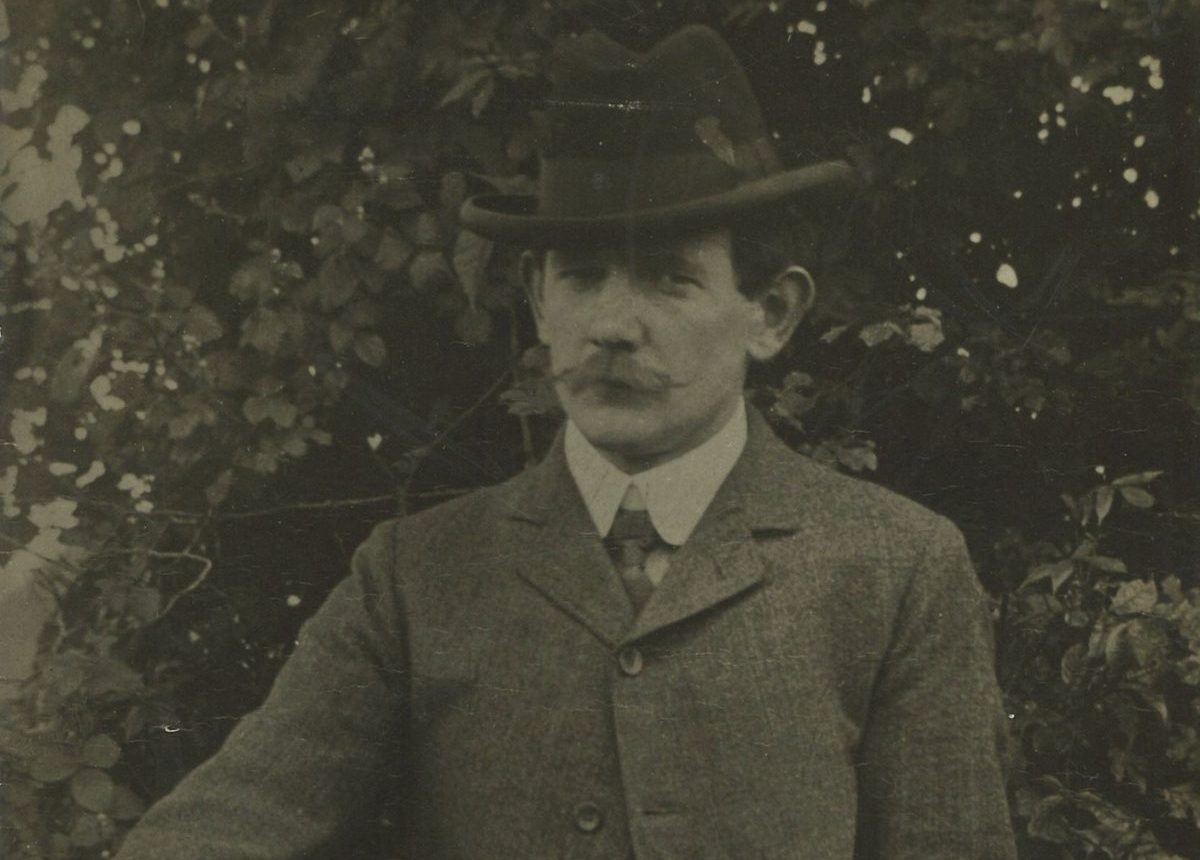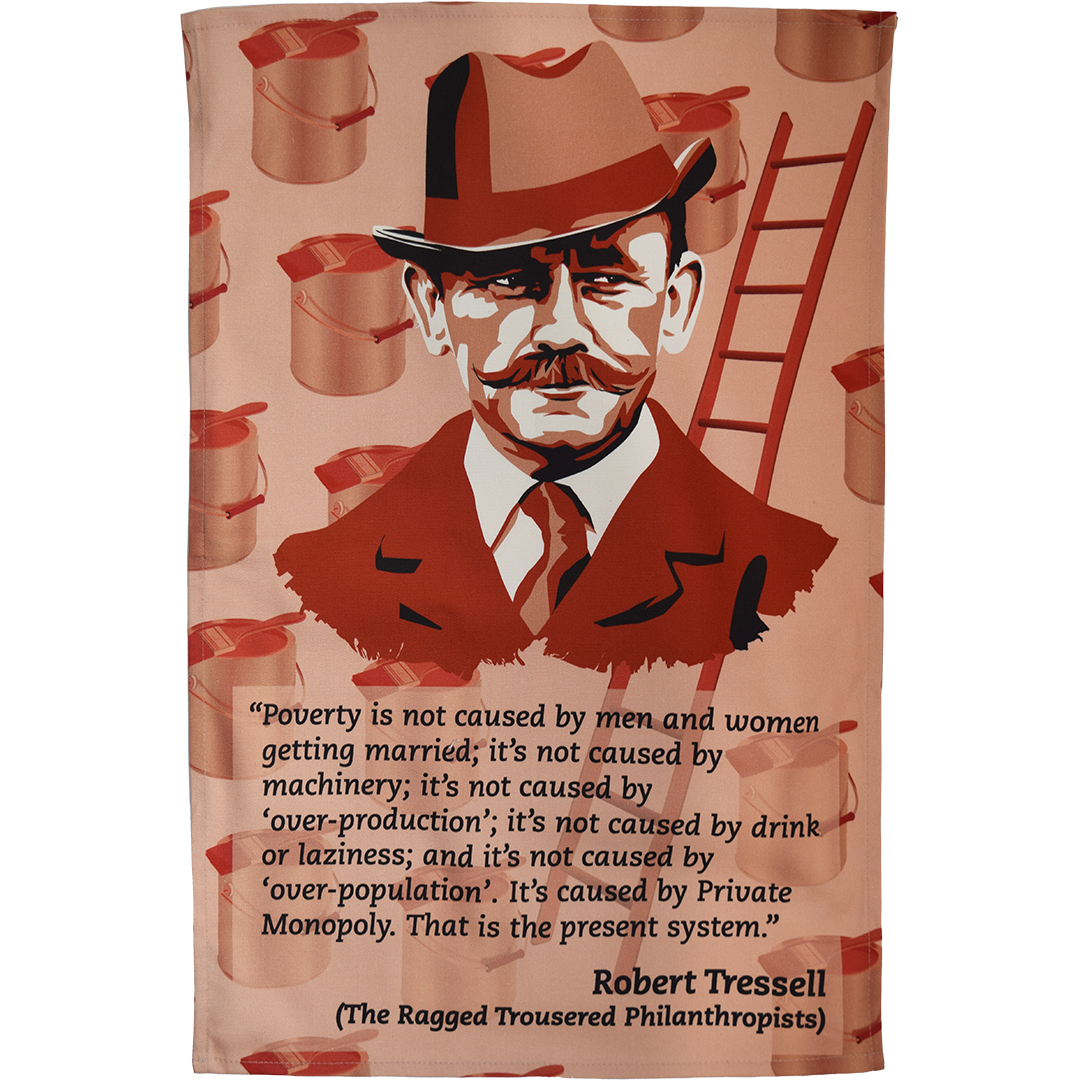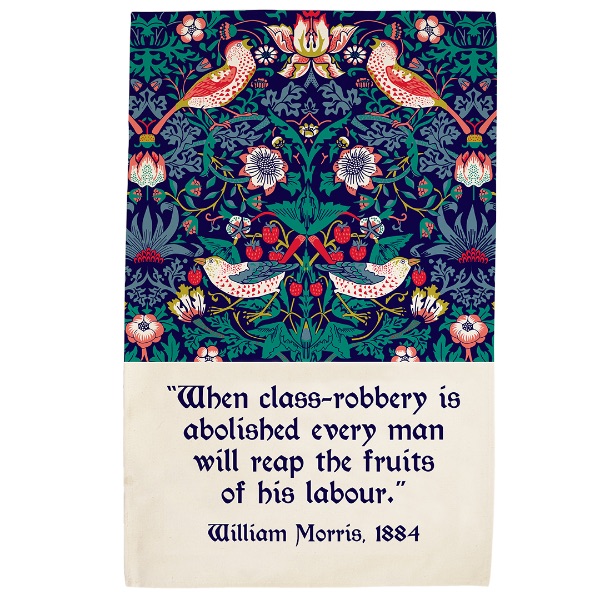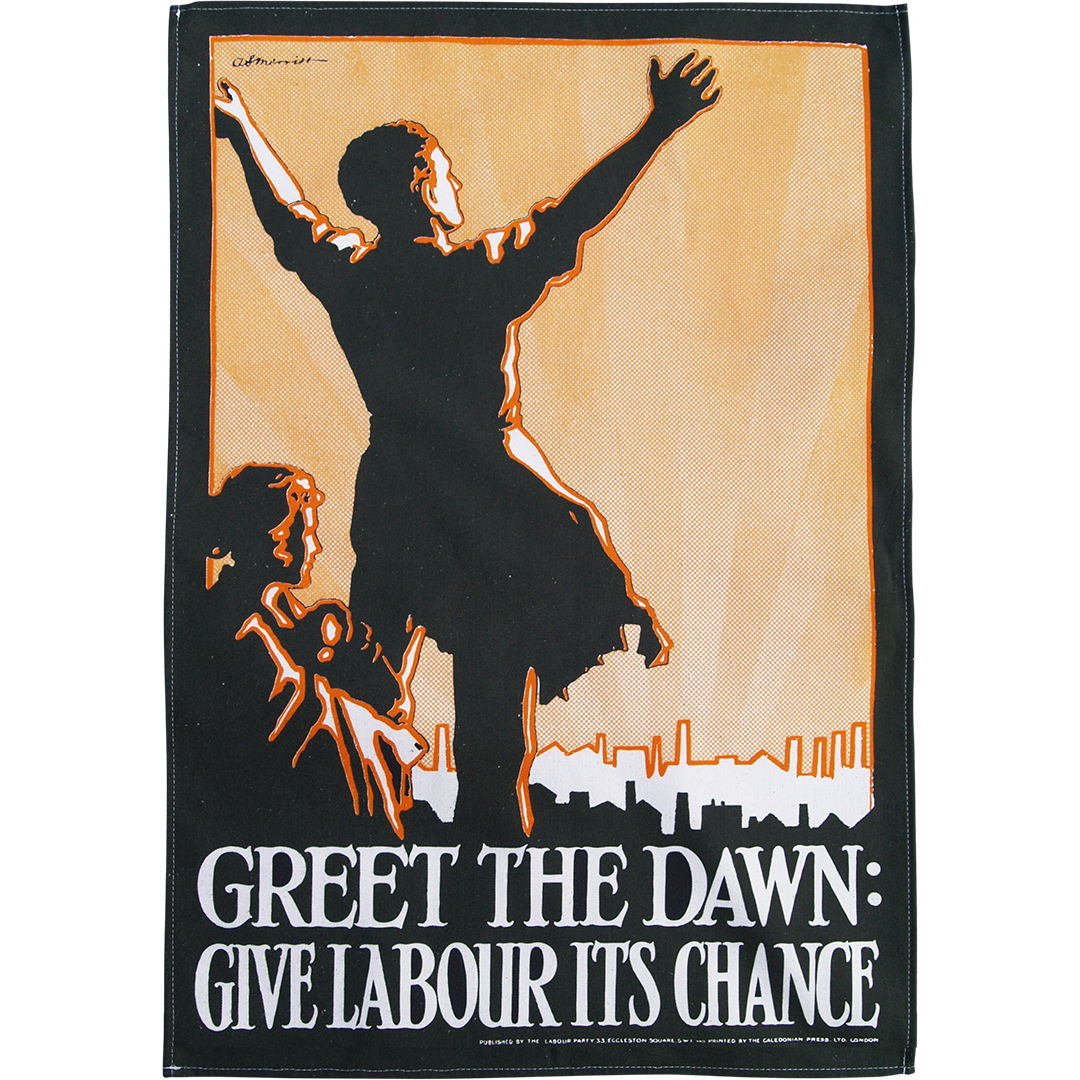The Ragged-Trousered Who?
Posted by Pete on 23rd Apr 2024

Robert Tressell's great novel was a battle cry against a capitalist system based on exploitation and inequality
Today marks 110 years since Robert Tressell's The Ragged-Trousered Philanthropists was first published.
Written by the housepainter, Robert Noonan, it’s one of the most important pieces of working-class literature in the English language.
The book is a passionate socialist denunciation of capitalism in Edwardian Britain, and Noonan meant for it to raise the class consciousness of workers across the country.
Published under his pen name 'Robert Tressell', the novel rails against private monopoly and capitalist exploitation
See the Robert Tressell tea towel
It seems appropriate that one of the great works of proletarian fiction in British history was penned by an Irishman – Noonan was from Dublin originally.
As Victorian radicals like
Karl Marx had long since recognised, Irish immigrant workers formed the political vanguard of working-class politics in Britain, fighting both the material exploitation of capital and the colonial oppression of Empire.
Born in Dublin in 1870, Noonan's family had moved to London by the mid-1870s.
During the 1880s, when he began work as a housepainter and signwriter, Noonan spent time in Liverpool, an important hub of the Irish diaspora in England.
Then, in the early 1890s, he moved all the way across the Empire to South Africa. First Cape Town then, in 1894, Johannesburg.
It was here, in South Africa, that Noonan first adopted the politics of working-class socialism and Irish nationalism.
He helped to organise British workers in the colony through the Trades and Labour Council, and he was elected to the committee of the socialist International Independent Labour Party, where he began to read the works of socialist thinkers such as
William Morris.
Morris may be most famous for his textile designs, but he also published fiction, poetry and essays during his life
See the William Morris tea towel
Noonan also linked up with the large diaspora of Irish anticolonial activists then in South Africa, and he formed part of the Transvaal ’98 Commemoration Committee, to mark the centenary of the United Irishmen uprising against British rule in 1798.
In 1901, Noonan returned to England, where he found work as a housepainter in Hastings.
He continued his socialist activism, in a context where working-class political organisation was on the rise – the
Labour Party had just been founded in 1900.
In 1906, Noonan helped form the Hastings branch of the Marxist Social Democratic Federation (SDF), and he organised campaigns against local councillors colluding with big business.
But despite the growth of socialist politics in the U.K., the living conditions for workers were still poor.
What’s more, socialism wasn’t gaining in popularity
among workers as quickly as many had hoped.
It wasn’t until the 1920s that the Labour Party became the dominant political force in the British working class.
Many workers still put their faith in the Liberals and the Tories, parties explicitly committed to the capitalist economic order.
It was in response to this situation that Robert Noonan wrote
The Ragged-Trousered Philanthropists, in the spare minutes he could find between shifts.
The Labour Party was founded in 1900, but it wasn't until the 1923 election that Labour became a force to be reckoned with
See the Greet the Dawn tea towel
The eponymous ‘philanthropists’ were workers in contemporary Britain who still willingly acquiesced in a capitalist system based upon the exploitation of their own labour.
Because they got nothing out of this exchange – and in fact lost everything to it – Noonan saw the ragged-trousered workers’ acquiescence as an act of (deluded) charity towards the British ruling class.
The book was intended to shake workers out of their political passivity, increase their class consciousness, and make them socialists.
It was a work of semi-autobiography by Noonan, based on his own grim experiences of working life in Hastings – a town he reimagined as the fictional ‘Mugsborough.’
Noonan wrote under the pen-name ‘Robert Tressell,’ to avoid being blacklisted from work for his left-wing opinions.
But he needn’t have worried. After several publishers refusing the book, Noonan died of tuberculosis in 1911 – a disease doubtless linked to the poor working conditions imposed on builders and housepainters in contemporary England.
It was only due to the dogged efforts of Noonan’s daughter, Kathleen, that
The Ragged-Trousered Philanthropists was published at all, three years later, in April 1914.
It has since become a global classic of socialist literature because of how Noonan charted a course by which working-class readers of his work could start to see themselves as members of a class destined to transform the world, not simply to accept it.
As
George Orwell reflected on Noonan’s book in 1946, it was so powerful that it leaves one
"…with the feeling that a considerable novelist was lost in this young working-man whom society could not bother to keep alive."



